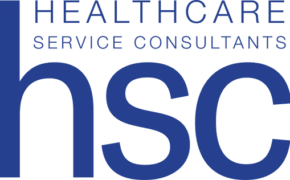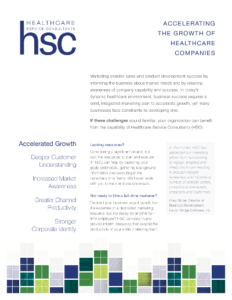
If there’s one thing healthcare IT entrepreneurs love, it’s more tech. The question is, what is worth investing into a marketing tech stack versus what is a waste of time and money?
In the world of marketing automation, there’s no shortage of software solutions. All promise to enable and simplify content delivery and lead generation. I’m sure you’ve seen plenty of these martech options in your marketing strategy development.
Not so fast.
While martech may sound like a must-have for a busy founder, these tools also come with costs. This is both in respect to licensing fees, as well as time and effort required to configure, integrate, and manage them. For many early-stage companies, these costs have the potential to outweigh gained value.
In this blog, we’ll discuss what healthcare IT founders should consider when deciding which software tools are right for them.
Where to Begin?
There are many marketing automation tools available, it would be impossible to list them all in a single blog. Yet, here are a few of the most popular categories:
- CRM. A customer relationship management platform (HubSpot, SalesForce) can help you track leads, manage the sales journey, and foster ongoing customer relationships.
- Social Media Management. Besides individual platform tools, aggregated platforms like HootSuite can help schedule, manage, and track social media activity across multiple platforms.
- Google Analytics. This tool offers a variety of methods (free or paid) to track website traffic and performance, as well as manage the effectiveness of your SEO and Adwords efforts.
- Email Automation. Build and manage email contact lists, create and send company e-newsletters, and measure engagement (clicks, etc.). All work to optimize email campaigns.
It’s important to keep in mind that many of these tools—while industry agnostic—were designed to support consumer-based sales and marketing activities. Healthcare IT is a different beast. You’re not trying to drive customers to your website to buy something that fulfills an immediate physical or emotional need. Rather, websites in healthcare IT are more like information repositories. They provide various clinical, operational, or technical personas. Buyers can find information about the problems you solve, and the proof points that describe how your products solve them.
This affects the technology one might need. This is especially true for early-stage companies that may be early in the product commercialization effort. Unfortunately, there’s no fixed answer to the question “which tools do I need?” The best way to answer this question is to consider your company’s strategic goals and focus on one or two tools that will help you achieve them.
Align Goals, Technology and People
Much like your business goals drive your sales and marketing activities, so too should they inform your marketing IT needs. For instance, if you’re a startup with beta customers attained through direct relationships, you may not need much technology at this time. But, if you’re approaching the commercialization phase and your goal is to build awareness and start developing a sales funnel then you need technology that supports tactics like email marketing, tracking website traffic or creating and measuring social media engagement.
Ultimately, it’s important to realize you’re not going to achieve business success based on the tools and technologies you have. Instead, invest in the people who are driving your marketing efforts. Leverage technology to make them more productive by enabling efficient use of the appropriate marketing tactics, measuring their impact, and identifying opportunities to continuously learn and refine your target audience, personas, messaging, and approach.
Keep It Simple
There’s a lot of value in keeping things simple. Using standalone, inexpensive (or free) tools that support your organization’s core strategic goals is often enough! For example, Google Analytics makes it easy to track basic website traffic statistics. As a startup, one doesn’t have to track every bit of traffic or link. Or, a simple spreadsheet may be an effective initial CRM.
Some technologies are so complex they need an expert to set up and manage them in a way that will be effective for your organization. This often requires an (expensive) outside resource or an internal hire (e.g. a WordPress or Sales Force expert). Take a step back and consider whether the current stage of your business and its strategic needs align with this depth of investment.
Also, consider that your needs will evolve over time. Keeping it simple up front can make it easier to adopt new technologies in the future as the company grows and its sales and marketing needs become more complex. This also helps avoid “wedding” yourself to a technology early on that won’t be able to meet the business’ longer-term needs.
Find a Balance
Identifying the marketing automation tools that are both effective and affordable can be overwhelming—especially for an early-stage healthcare IT organization. Considering your business goals and determining which tools will best enable your team to achieve success is a great first step. Need some help getting started? Our product marketing experts have helped design marketing programs and identify platforms for healthcare IT organizations at all stages of growth that strike the perfect balance between effectiveness and cost. Contact us to learn more.




